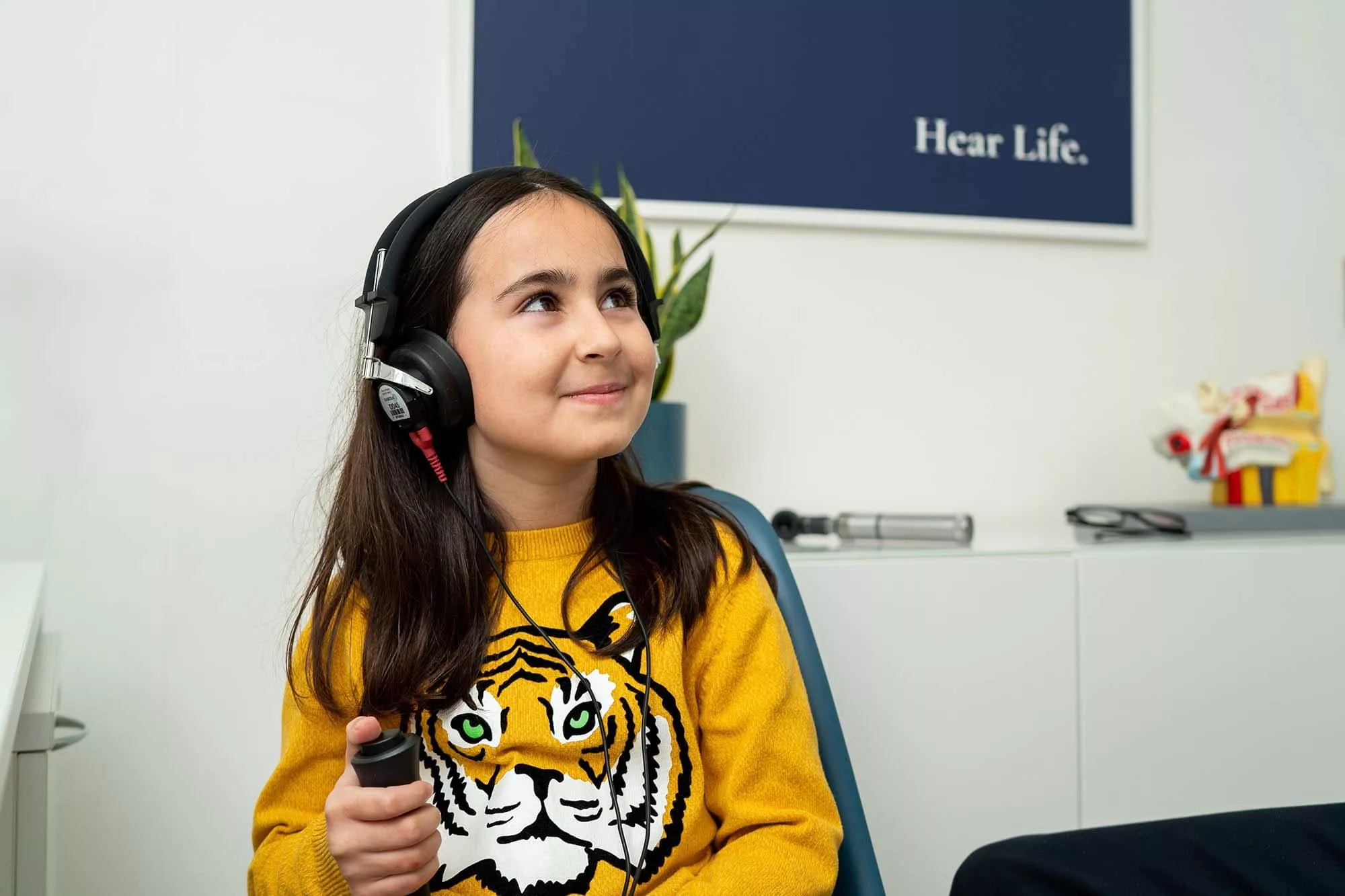Private Paediatric Audiology
Children’s audiology practice in Leeds
Children’s Hearing Tests
Thankfully, most permanent hearing loss that is present when babies are born, is detected with the newborn hearing screening programme. These children’s hearing tests are crucial in determining if hearing loss is present at birth.
There is, however, a high proportion of children who develop intermittent, often fluctuating hearing loss, known as ‘glue ear’. This can usually be detected with a children’s hearing test.
What is glue ear?
Glue ear is essentially when the small middle ear space (usually filled with air), which contains the three tiny middle ear bones, gets filled with a sticky, mucus-type fluid. Find out more
This restricts the movement of the eardrum and the middle ear bones and effectively reduces the amount of sound which is transmitted to the cochlea in the inner ear.
This can give rise to a hearing loss of between 0 and 40 dB (decibels) which can have a huge impact on a child’s ability to hear.
Signs of ‘glue ear’
- They do not respond to their name
- Their behaviour deteriorates
- They say ‘what’ or ‘pardon’ more frequently
- They appear more tired and unsettled than usual
- Their speech becomes unclear
- They often appear that they are not listening
- They struggle to hear the TV or turn it up/sit close
- Their teacher notices they are struggling with following instructions
- They don’t hear well at a distance
Treatment for glue ear
Once a child’s hearing test has identified a glued ear, several things must be considered.
Glue ear is common and is not something to be unduly concerned about if it is short-lived.
If, however, it persists for more than three months, it can become problematic. If it continues, there are several strategies which can help.
How we can help
Our private paediatric audiologist has years of experience working with children with glue ear.
Often working with Ear, Nose and Throat (ENT) colleagues or simply monitoring hearing levels and providing support with hearing devices when required, you will be given the most appropriate advice for your child.
At THE HEARING SPACE, our specialist paediatric audiologist can assess your child’s hearing, determining if ‘glue ear’ is present and, if so, what impact it has on your child’s hearing.
With many years of experience working with children with additional needs and neurodivergent populations, you can be assured of age and developmentally appropriate assessment.
As well as using play audiometry and pure tone audiometry, we can also test cochlear function using a technique similar to that used when babies are born. This test is called an Oto-acoustic emission (OAE) test and does not require any cooperation from an infant.
If you would like the space to discuss your child’s hearing, our paediatric audiologist has a wealth of experience to support you.
Please get in touch with us for further information about arranging a children’s hearing test.

What our clients say
“We have visited Paul at The Hearing Space today with our 3 year old who has a speech delay.
We have never seen our son so comfortable and confident at a medical appointment before and this is down to Paul taking time to make him feel at ease, getting down to his level to communicate with him and having patience.
Although no hearing issues were found, Paul was happy to give us further advice on where to turn next. We would 100% recommend to anyone!”
Google review
